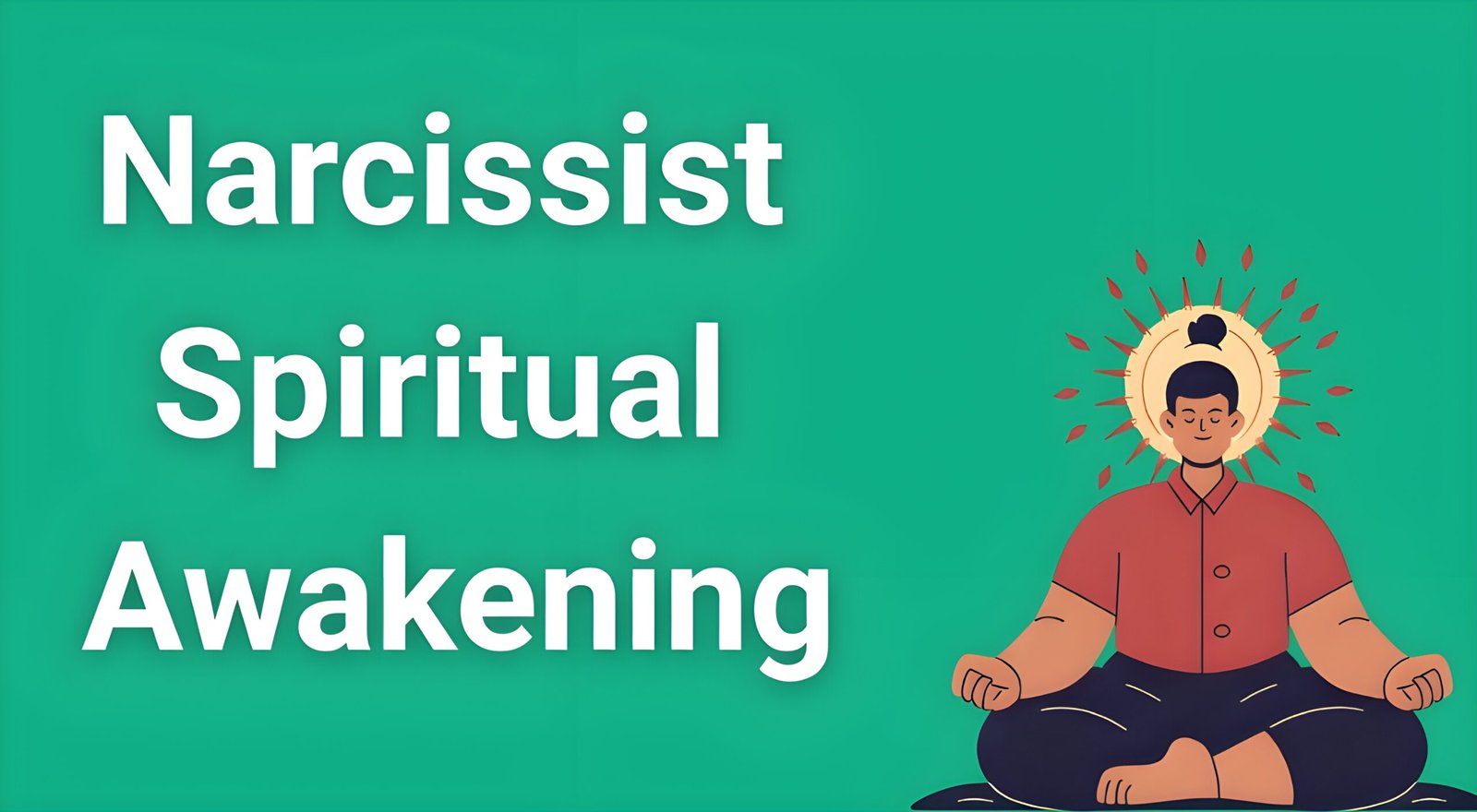The aging narcissist man? 7 shocking changes nobody warns you about – this phrase captures the bewilderment and horror experienced by countless family members watching a narcissistic father, husband, or relative transform into something even more destructive as he ages. After working with thousands of survivors through NarcissismExposed.com as a Certified Narcissistic Abuse Specialist, I can tell you that understanding these changes will either validate your worst fears or prepare you for a battle you never saw coming.
- Understanding Why The Aging Narcissist Man Changes So Dramatically
- The Aging Narcissist Man: 7 Shocking Changes Nobody Warns You About
- The Family Impact: How The Aging Narcissist Man Destroys Multiple Generations
- Protecting Yourself: Strategies for Dealing with The Aging Narcissist Man
- The Healing Process: Recovery from Dealing with The Aging Narcissist Man
- Key Takeaways: Understanding The Aging Narcissist Man
- Frequently Asked Questions
The devastating truth is that aging often makes narcissistic men more dangerous, not less, as they lose their traditional sources of validation and power while retaining their sense of entitlement and need for control. In contrast to healthy individuals who develop wisdom and acceptance with age, narcissistic men often become increasingly bitter, manipulative, and destructive when confronted with the limitations and losses that come with aging.
What makes this transformation so shocking is that many people expect aging to mellow difficult personalities or bring wisdom and self-reflection. Instead, the aging narcissist man often becomes a concentrated version of his worst traits, weaponizing his vulnerability while maintaining his entitlement and need for admiration.
Furthermore, understanding these changes isn’t just important for your sanity – it’s crucial for your protection and the safety of your family. Moreover, the aging narcissist man often targets family members with increased intensity as his other sources of supply diminish, making these relationships more dangerous rather than easier to manage.
Understanding Why The Aging Narcissist Man Changes So Dramatically
Before exploring the specific shocking changes that characterize the aging narcissist man, it’s essential to understand the psychological and social factors that drive these transformations. Importantly, these changes aren’t random – they’re predictable responses to the threats that aging poses to narcissistic supply and self-image.
The aging process threatens every foundation of narcissistic identity. Specifically, for narcissistic men who have built their self-worth on external validation, physical attractiveness, professional success, and social dominance, aging represents a systematic dismantling of their primary sources of narcissistic supply.
The Supply Crisis of Aging
As men age, many of their traditional sources of narcissistic supply naturally diminish or disappear entirely. Consequently, this creates what psychologists call a “narcissistic supply crisis” that triggers increasingly desperate and destructive behaviors aimed at maintaining their sense of superiority and control.
Traditional supply sources that diminish include:
- Physical attractiveness and sexual appeal
- Professional power and workplace dominance
- Social status and influence in community circles
- Physical strength and athletic abilities
- Financial earning potential and material accumulation
- Attention from younger people, particularly women
As a result, the psychological impact includes:
- Increased rage and resentment as supply sources disappear
- Desperate attempts to reclaim lost youth and power
- Projection of blame onto family members for their declining status
- Intensified need for control over remaining relationships
- Growing bitterness about life not meeting their grandiose expectations
Furthermore, research published in the Journal of Personality and Social Psychology shows that narcissistic individuals experience more severe psychological distress during major life transitions, with aging representing one of the most challenging periods for maintaining their grandiose self-image.
The Vulnerability Paradox
One of the most complex aspects of the aging narcissist man is how he simultaneously becomes more vulnerable while becoming more dangerous. Moreover, this paradox creates confusion for family members who may feel sorry for his obvious struggles while experiencing increased manipulation and abuse.
The vulnerability includes:
- Genuine health concerns and physical limitations
- Social isolation as peers and colleagues distance themselves
- Financial insecurity due to poor planning or retirement
- Awareness of mortality and limited time remaining
- Loss of independence and need for assistance
However, the increased danger includes:
- Using vulnerability as a weapon to manipulate family members
- Escalating demands for attention and caretaking
- Increased willingness to destroy relationships rather than lose control
- More sophisticated manipulation tactics honed over decades
- Desperation that removes previous inhibitions about harmful behavior
The Aging Narcissist Man: 7 Shocking Changes Nobody Warns You About
Understanding the specific ways that aging transforms narcissistic men helps family members recognize these patterns and protect themselves from escalating manipulation and abuse. Importantly, these changes often catch families completely unprepared because they contradict expectations about normal aging processes.
Change #1: From Charming to Openly Bitter and Resentful
The first shocking change in the aging narcissist man is the complete erosion of his charming public facade, replaced by open bitterness and resentment toward everyone he believes has failed to give him the life he deserved. Consequently, the mask that once made him socially acceptable disappears, revealing the angry, entitled core that was always underneath.
This transformation manifests as:
- Constant complaints about how life has treated him unfairly
- Open resentment toward younger people who have what he’s lost
- Blame directed at family members for his disappointments and failures
- Cynical commentary about everyone else’s achievements or happiness
- Nostalgic obsession with his “glory days” when he had more power and attention
Why this happens: As traditional sources of admiration disappear, the aging narcissist man can no longer maintain the energy required for his charming performance. Additionally, the bitterness was always there, but previously hidden behind strategic charm.
The impact on families: Family members often feel shocked by this transformation, especially adult children who remember a more charming father. Furthermore, the open hostility can be more damaging than previous covert manipulation because it’s constant and unfiltered.
One adult daughter shared: “My father went from being the charming guy everyone loved to this bitter, angry man who complains constantly about everything. He blames our family for ruining his life, but we’re the only ones who still tolerate him.”
Change #2: Weaponizing Health Issues and Vulnerability
The second shocking aspect of the aging narcissist man is how he transforms genuine health concerns and vulnerabilities into sophisticated weapons for manipulation and control. Rather than accepting help gracefully, he uses his medical needs to create guilt, obligation, and dependency in family members.
This weaponization includes:
- Exaggerating health symptoms to gain attention and sympathy
- Timing medical “crises” to coincide with family events or celebrations
- Using health scares to force family members to abandon their own plans
- Refusing to follow medical advice while blaming family for poor outcomes
- Creating emergency situations that require immediate family response
The manipulation patterns:
- “If you really loved me, you’d drop everything to help me”
- Using health as an excuse to avoid responsibility for his behavior
- Threatening self-neglect or harm if his demands aren’t met
- Playing family members against each other through health-related guilt
- Rejecting professional care in favor of family caretaking that he can control
Why this is so effective: Health concerns trigger natural compassion and fear in family members, making it difficult to recognize when genuine medical needs are being exploited for manipulation.
The family impact: As a result, adult children often find themselves trapped between genuine concern for their father’s health and recognition that their caregiving is being exploited and manipulated.
Change #3: Financial Manipulation and Economic Abuse Escalation
The third shocking change involves the aging narcissist man escalating financial manipulation and economic abuse as he loses other forms of power and control. Consequently, money becomes his primary weapon for maintaining dominance over family relationships.
This escalation manifests as:
- Using inheritance promises to control adult children’s behavior
- Financial threats and punishment for perceived slights or independence
- Refusing to plan for long-term care while expecting family financial support
- Creating financial emergencies through poor decisions while demanding rescue
- Using money to triangulate family members against each other
Common financial manipulation tactics:
- Threatening to disinherit children who don’t comply with his demands
- Refusing to share financial information while expecting family support
- Making impulsive financial decisions that affect the whole family
- Using gifts and financial support as tools for guilt and obligation
- Creating artificial scarcity to make family members compete for resources
The long-term impact: These tactics often destroy family relationships while creating financial instability for everyone involved. Additionally, adult children may sacrifice their own financial security trying to manage his poor decisions.
Legal and ethical concerns: Furthermore, the aging narcissist man may engage in financial abuse of elderly spouses or manipulation of legal documents to maintain control even beyond death.
Change #4: Intensified Need for Constant Attention and Validation
The fourth shocking transformation is how the aging narcissist man’s need for attention becomes desperate and all-consuming, often requiring family members to provide constant validation and entertainment. Moreover, what was once periodic attention-seeking becomes a full-time demand.
This intensification includes:
- Monopolizing family gatherings and conversations
- Creating drama or conflict to ensure he remains the center of attention
- Punishing family members who don’t provide sufficient admiration
- Competing with grandchildren and other family members for attention
- Using increasingly dramatic tactics to force family focus onto his needs
The attention-seeking behaviors:
- Telling the same stories repeatedly about his past achievements
- Interrupting conversations to redirect focus to himself
- Creating medical or emotional crises during others’ important moments
- Refusing to participate in activities where he’s not the center of attention
- Using technology and social media to demand constant interaction
Impact on family dynamics: As a result, family events become exhausting performances where everyone must focus on keeping the aging narcissist man happy and validated. Consequently, spontaneous joy and natural family connection become impossible.
The generational impact: Furthermore, grandchildren often receive conditional love based on their ability to provide attention and admiration, creating the same toxic dynamics in the next generation.
Change #5: Increased Cruelty and Sadistic Pleasure in Others’ Pain
The fifth shocking change reveals how the aging narcissist man often becomes more overtly cruel, taking visible pleasure in family members’ pain and disappointment. Specifically, the subtle sadism that may have been present earlier becomes overt and undeniable.
This cruelty manifests as:
- Open pleasure when family members experience setbacks or failures
- Deliberate sabotage of family members’ achievements or celebrations
- Cruel comments disguised as “honesty” or “wisdom”
- Emotional punishment for any perceived slight or independence
- Using family secrets or vulnerabilities as weapons during conflicts
The sadistic patterns:
- Smiling or showing satisfaction when delivering hurtful information
- Withholding support during family members’ difficult times
- Using family gatherings to publicly humiliate or criticize
- Encouraging conflict between family members while appearing innocent
- Taking credit for others’ achievements while minimizing their efforts
Why this develops: As other sources of power diminish, the aging narcissist man may find that causing pain becomes one of the few ways he can still feel powerful and in control.
The psychological impact: Consequently, family members often feel shocked by this open cruelty, especially when it represents a dramatic change from previous behavior patterns. Furthermore, the realization that someone you love takes pleasure in your pain is profoundly traumatic.
Change #6: Obsessive Legacy Control and Posthumous Manipulation
The sixth shocking change involves the aging narcissist man becoming obsessed with controlling his legacy and continuing his manipulation even beyond death. Moreover, this includes elaborate schemes to ensure his influence persists and his version of family history becomes the official narrative.
Legacy control tactics include:
- Rewriting family history to position himself as the hero or victim
- Creating detailed wills and inheritance plans designed to manipulate family relationships
- Recording videos or writing letters intended to guilt family members after his death
- Establishing foundations or trusts that maintain his control over family decisions
- Destroying evidence of his harmful behavior while preserving only positive memories
The posthumous manipulation:
- Using inheritance to reward and punish family members for their current behavior
- Creating conditions in legal documents that force family members to maintain his image
- Establishing annual traditions or memorials that center on his memory
- Writing narratives that blame family members for any relationship difficulties
- Setting up systems that continue to triangulate family members against each other
Why this becomes obsessive: The approaching end of life threatens the narcissist’s sense of immortality and control, making legacy management a desperate final attempt to maintain influence.
The lasting impact: Therefore, these legacy control tactics often continue to damage family relationships for generations, as family members struggle with guilt, obligation, and conflicting loyalties long after his death.
Change #7: Complete Loss of Mask – The True Self Revealed
The seventh and most shocking change is when the aging narcissist man completely drops his social mask, revealing the entitled, rageful, and deeply disturbed individual he’s always been underneath. Ultimately, this final transformation can be terrifying for family members who have never seen his true nature without any performance or pretense.
The mask removal includes:
- Open displays of rage and hatred previously hidden from family
- Complete abandonment of social norms and appropriate behavior
- Verbal, emotional, or even physical abuse without concern for consequences
- Threats and intimidation tactics that were previously subtly implied
- Total disregard for others’ feelings, needs, or wellbeing
What the true self looks like:
- Pure entitlement without any reciprocal consideration
- Rage that seems disproportionate to any reasonable provocation
- Complete lack of empathy or concern for others’ suffering
- Manipulation without any attempt to disguise or justify the behavior
- Vindictiveness that prioritizes revenge over all other considerations
Why the mask finally drops: The aging narcissist man may no longer have the energy, cognitive ability, or motivation to maintain his false persona. Additionally, he may also believe he no longer needs to pretend because family members are trapped through obligation and guilt.
The profound impact: Seeing the aging narcissist man without his mask can be devastating for family members who maintained hope that some part of him genuinely cared for them. Furthermore, this revelation often forces families to completely reevaluate their entire relationship history.
The Family Impact: How The Aging Narcissist Man Destroys Multiple Generations
Understanding how the aging narcissist man affects entire family systems helps explain why his transformation is so devastating and why protective strategies are essential. Moreover, his escalating behavior often creates trauma that ripples through multiple generations.
The Caretaking Trap
Adult children of aging narcissistic men often find themselves trapped in impossible caretaking situations where their natural compassion and family obligation are weaponized against them. Furthermore, this trap becomes more complex as genuine health needs become mixed with manipulation tactics.
The caretaking dilemma includes:
- Feeling obligated to provide care while recognizing the manipulation
- Guilt about setting boundaries with someone who appears vulnerable
- Financial pressure to support his needs while protecting their own families
- Social pressure from others who don’t understand the abusive dynamics
- Legal and ethical concerns about elder care responsibilities
Common family responses:
- Some adult children become over-responsible, sacrificing their own wellbeing
- Others completely distance themselves, sometimes creating family conflict
- Siblings often disagree about appropriate responses, causing family division
- Spouses of adult children may struggle to understand the complex dynamics
- Grandchildren witness the dysfunction and may develop their own trauma responses
The Intergenerational Trauma Perpetuation
The aging narcissist man often uses his final years to ensure his toxic patterns continue into future generations through manipulation of grandchildren and family dynamics. Consequently, his legacy of trauma can persist long after his death.
This perpetuation includes:
- Teaching grandchildren to prioritize his needs over their own wellbeing
- Creating competing loyalties between grandchildren and their parents
- Using gifts and attention to manipulate grandchildren’s behavior
- Modeling entitlement and manipulation as normal family behavior
- Establishing family traditions that center on his memory and demands
The long-term impact: As a result, families may struggle with guilt, confusion, and conflicted relationships for decades after the aging narcissist man’s death, as his manipulation tactics continue to influence family dynamics.
Protecting Yourself: Strategies for Dealing with The Aging Narcissist Man
Understanding the shocking changes that characterize the aging narcissist man is only the first step. Moreover, protecting yourself and your family requires specific strategies that acknowledge both his genuine vulnerabilities and his increased capacity for harm.
Setting Protective Boundaries
Creating boundaries with the aging narcissist man requires accepting that his needs and vulnerabilities don’t eliminate your right to emotional and physical safety. Furthermore, these boundaries must be firm enough to protect you while flexible enough to accommodate genuine emergencies.
Essential boundary strategies:
- Limiting contact to what feels emotionally and physically safe
- Establishing clear consequences for manipulative or abusive behavior
- Creating communication protocols that prevent manipulation
- Involving professionals for medical and legal decisions when possible
- Building support systems that validate your boundary-setting efforts
Common boundary challenges:
- Social pressure to provide unlimited care regardless of his behavior
- Guilt about setting limits with someone who appears vulnerable
- His escalation of manipulation tactics when boundaries are implemented
- Family members who don’t understand or support boundary-setting efforts
- Legal and financial complexities that make boundaries more difficult
Building Professional Support Systems
Dealing with the aging narcissist man often requires professional intervention and support that extends beyond traditional family caregiving approaches. Additionally, these professionals can provide objective assessment and intervention when family dynamics become too complex or dangerous.
Essential professional support includes:
- Geriatric care managers who understand personality disorders
- Therapists specializing in narcissistic abuse and family trauma
- Elder law attorneys who can address financial and legal manipulation
- Medical professionals who understand the intersection of personality disorders and aging
- Social workers trained in elder abuse recognition and intervention
Why professional support is crucial:
- Objective assessment of genuine needs versus manipulation tactics
- Legal protection for family members making difficult decisions
- Emotional support for family members dealing with guilt and obligation
- Intervention strategies that prioritize safety while acknowledging vulnerabilities
- Documentation of concerning behaviors for potential legal or medical intervention
The Healing Process: Recovery from Dealing with The Aging Narcissist Man
Recovery from the trauma of dealing with an aging narcissist man requires specialized support that acknowledges the unique challenges of family obligation, social pressure, and complex grief processes. Furthermore, this healing journey often involves processing decades of manipulation disguised as family loyalty.
Processing Complex Grief
Family members dealing with the aging narcissist man often experience complex grief that includes mourning the father or husband they never truly had while simultaneously dealing with ongoing abuse and manipulation. Moreover, this grief process requires specialized support and understanding.
Complex grief elements include:
- Mourning the relationship you hoped for but never received
- Grieving his declining health while protecting yourself from his manipulation
- Processing decades of manipulation and abuse disguised as family love
- Dealing with social misunderstanding about your complex feelings
- Preparing for death while managing ongoing trauma from his behavior
Healing strategies:
- Working with trauma-informed therapists who understand narcissistic family dynamics
- Joining support groups for adult children of narcissistic parents
- Processing your own childhood trauma that may have been minimized or ignored
- Developing self-compassion for the difficult position you’re in
- Building relationships based on mutual respect and genuine care
Breaking Generational Patterns
One of the most important aspects of healing involves ensuring that the aging narcissist man’s toxic patterns don’t continue to influence future generations. Additionally, this requires conscious effort to model healthy relationships and communication patterns.
Pattern-breaking strategies include:
- Teaching younger family members about healthy versus manipulative relationship dynamics
- Modeling appropriate boundaries and self-care behaviors
- Providing emotional support for family members struggling with guilt and obligation
- Creating new family traditions that don’t center on his needs or demands
- Seeking family therapy to address the systemic impact of his behavior
Key Takeaways: Understanding The Aging Narcissist Man
The aging narcissist man: 7 shocking changes nobody warns you about represents a critical understanding for family members dealing with increasingly difficult and dangerous aging narcissistic men who weaponize their vulnerability while maintaining their entitlement and need for control.
Remember these crucial insights:
- Aging often makes narcissistic men more dangerous, not less as they lose traditional sources of supply while retaining their sense of entitlement
- The seven shocking changes include becoming openly bitter, weaponizing health issues, escalating financial manipulation, demanding constant attention, showing increased cruelty, obsessing over legacy control, and completely dropping their social mask
- Vulnerability and dangerousness coexist in aging narcissistic men, creating complex situations that require professional guidance
- Family caretaking often becomes a trap that exploits natural compassion and obligation while enabling continued abuse
- Protective boundaries are essential regardless of his age, health status, or apparent vulnerability
- Professional support is crucial for navigating the legal, medical, and emotional complexities of these relationships
The path forward involves:
- Recognizing that his aging doesn’t eliminate your right to safety and wellbeing
- Setting protective boundaries that acknowledge both his vulnerabilities and his capacity for harm
- Building professional support systems that understand personality disorders and aging
- Processing the complex grief of dealing with an abusive family member you’re obligated to care for
- Breaking generational patterns to protect future family members from similar trauma
- Understanding that your feelings of confusion, resentment, and exhaustion are normal responses to abnormal behavior
Understanding the aging narcissist man: 7 shocking changes nobody warns you about isn’t about hatred or abandonment – it’s about preparation and protection. When family members search for this information, they’re often struggling with guilt, obligation, and confusion about someone who appears vulnerable while continuing to cause harm. Furthermore, these changes are predictable patterns that help explain why caring for aging narcissistic men becomes more difficult rather than easier.
Your safety, wellbeing, and that of your family are more important than maintaining the illusion of a loving family relationship that was never genuinely reciprocal. Moreover, the aging narcissist man may demand care and consideration, but this doesn’t obligate you to sacrifice your own mental health, financial security, or family stability to meet his ever-increasing demands.
Moving forward requires accepting the reality of who he is while protecting yourself and your loved ones from the escalating manipulation and abuse that often characterize his final years. Additionally, professional support, strong boundaries, and self-compassion are essential tools for navigating this challenging and often heartbreaking situation.
Frequently Asked Questions
My aging narcissistic father seems more vulnerable now – shouldn’t I be more compassionate?
Vulnerability and the capacity for harm can coexist, especially in aging narcissistic men who often weaponize their declining health and social status to manipulate family members. While natural compassion is understandable, it’s important to distinguish between genuine vulnerability that deserves support and performed vulnerability designed to exploit your caring nature. You can feel compassion for his genuine struggles while still protecting yourself from manipulation and maintaining healthy boundaries. Compassion doesn’t require sacrificing your own wellbeing or enabling harmful behavior.
How do I handle family members who say I should “respect my elders” despite his abusive behavior?
Many people don’t understand that personality disorders don’t improve with age and that elder status doesn’t excuse ongoing abuse or manipulation. You can educate family members about narcissistic behavior patterns, but remember that you don’t need their permission to protect yourself. Set boundaries about discussions regarding your relationship with him, and consider limiting contact with family members who pressure you to tolerate abuse. Your emotional and physical safety are more important than maintaining others’ comfort with traditional family expectations.
Is it normal to feel relief about my aging narcissistic father’s declining health?
Complex feelings about an aging abusive parent are completely normal and don’t make you a bad person. Many adult children experience relief mixed with guilt when their abusive parent’s power diminishes, while simultaneously feeling sad about the relationship they never had. These conflicted emotions are natural responses to a lifetime of manipulation and abuse. Consider working with a therapist who understands narcissistic family dynamics to process these complex feelings without judgment.
Should I be involved in his medical care and decision-making?
Your involvement in his medical care should be based on what feels emotionally and practically sustainable for you, not on family expectations or his demands. If you choose to be involved, consider working with geriatric care managers or medical social workers who can provide objective assessment and buffer direct manipulation. Document any concerning behaviors and maintain clear boundaries about what you will and won’t do. Remember that being his adult child doesn’t automatically make you responsible for managing his healthcare, especially if he’s been abusive.
How do I protect my children from his manipulation while still allowing a relationship?
Protecting children from narcissistic grandparents requires careful supervision and age-appropriate education about healthy relationship dynamics. Never leave children alone with him, and monitor interactions for signs of manipulation or inappropriate behavior. Teach your children that they don’t have to accept treatment that makes them uncomfortable, even from family members. If he begins using the children for manipulation or creating loyalty conflicts, consider ending or severely limiting contact. Your children’s emotional safety is more important than maintaining grandparent relationships.
What if he threatens suicide or self-harm when I set boundaries?
Threats of self-harm are serious manipulation tactics that require professional intervention, not family accommodation. If he threatens suicide, call emergency services or a crisis hotline rather than abandoning your boundaries. Don’t allow threats of self-harm to control your behavior or decision-making. Document these threats and inform his healthcare providers about the pattern. Remember that you cannot prevent someone from harming themselves by giving in to manipulation, and professional crisis intervention is the appropriate response.
How do I deal with the guilt of potentially inheriting from someone who abused me?
Financial inheritance from abusive parents creates complex emotions that many survivors experience. You can accept inheritance while still acknowledging the abuse you endured – these aren’t mutually exclusive. The money doesn’t erase the harm he caused, nor does accepting it mean you approve of his behavior. Consider using inherited resources for your own healing, your children’s benefit, or causes that matter to you. If the inheritance comes with manipulative conditions, consult with an attorney about your options. Your healing and wellbeing matter more than his attempts to control you even after death.






